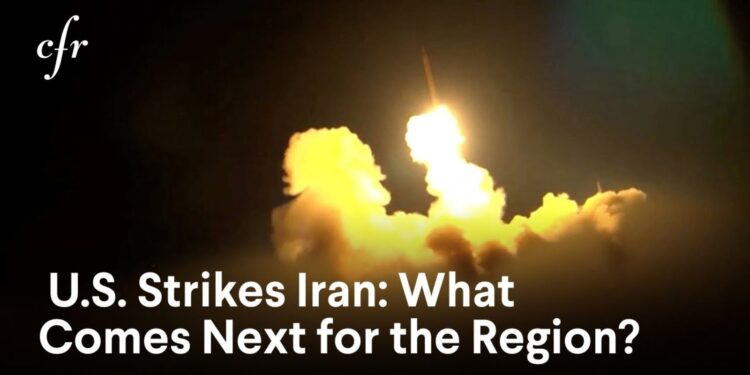In a surprising moment of bipartisan candor, Sen. Elissa Slotkin (D-MI) acknowledged in an ABC News interview on Thursday that U.S. airstrikes under President Donald Trump inflicted “significant damage” on Iran’s nuclear facilities, leaving the regime “the weakest that it’s been in my lifetime.”
Slotkin, a former CIA analyst and Pentagon official who completed three tours in Iraq, told anchor Linsey Davis that while the full extent of the damage remains to be seen, the early signs are clear: the Trump administration’s decision hit Iran hard—very hard.
“There was significant damage done,” Slotkin said of the recent strikes, adding that it’s “way too early to know the exact parameters of the battle damage… but there was significant damage done.”
The admission came just as Israel and Iran agreed to a temporary ceasefire following Trump’s decisive military action. Though the Iranian regime and its proxies have long destabilized the region, Slotkin acknowledged that Tehran now appears more crippled than at any point in recent history.
“It’s definitely the weakest I’ve seen Iran,” she noted. “I think because of these strikes, but also just the changes that have been happening in the region over the past two years.”
Still, the Michigan Democrat—who once served in the Obama administration—tempered her assessment by warning of potential long-term consequences if the current situation isn’t handled carefully. Drawing from her Iraq War experience, she pointed to how optimism from earlier administrations led to prolonged conflict.
“I also was in Iraq to see how the administration back then thought, ‘Oh yeah, the operations in Iraq will be really easy, one and done…’ Meanwhile, 20 years later, we still have troops in the country.”
Her point? The U.S. must remain alert and measured. Slotkin expressed concern that the Biden-era national security team—now helmed by Trump appointees including Defense Secretary Pete Hegseth—needs to manage potential escalation wisely.
“When the strike happened, we’re lucky that none of our soldiers were killed—and our bases in Qatar and Iraq and other places.”
Slotkin’s comments, though filtered through caution, ultimately confirm what many conservatives already believed: the Trump administration’s doctrine of peace through strength is producing real results. For years, Washington’s foreign policy elites coddled Iran under the belief that diplomacy alone could tame the world’s top sponsor of terror.
Under the Obama-Biden administration, billions of dollars flowed to Iran via sanctions relief and frozen assets—all under the fragile 2015 Iran nuclear deal (JCPOA). But Slotkin’s comments now reinforce what critics like Sen. Tom Cotton (R-AR) and CIA Director John Ratcliffe have asserted in the wake of the strike: decisive leadership has exposed and shattered the hollow core of the Iranian regime.
As National Review noted this week, “Iran’s only strength lies in the restraint of its enemies.” Trump removed that restraint—and Tehran folded.
This moment also spotlights a growing divide within the Democratic Party on foreign policy. While progressive voices in Congress remain critical of any military intervention, more centrist Democrats like Slotkin are quietly conceding the obvious: Trump’s bold action worked.
Sen. Slotkin’s admission that “Iran is the weakest it’s been in my lifetime” is not only a rare bipartisan moment—it’s a stunning reversal from the narrative pushed by much of the legacy media, which spent the last decade warning that Trump’s tough posture would lead to war.
Instead, it has led to a ceasefire—and a weakened enemy.
And while Slotkin’s comments were laced with caution, her core message speaks volumes: Iran blinked. And the world noticed.




















